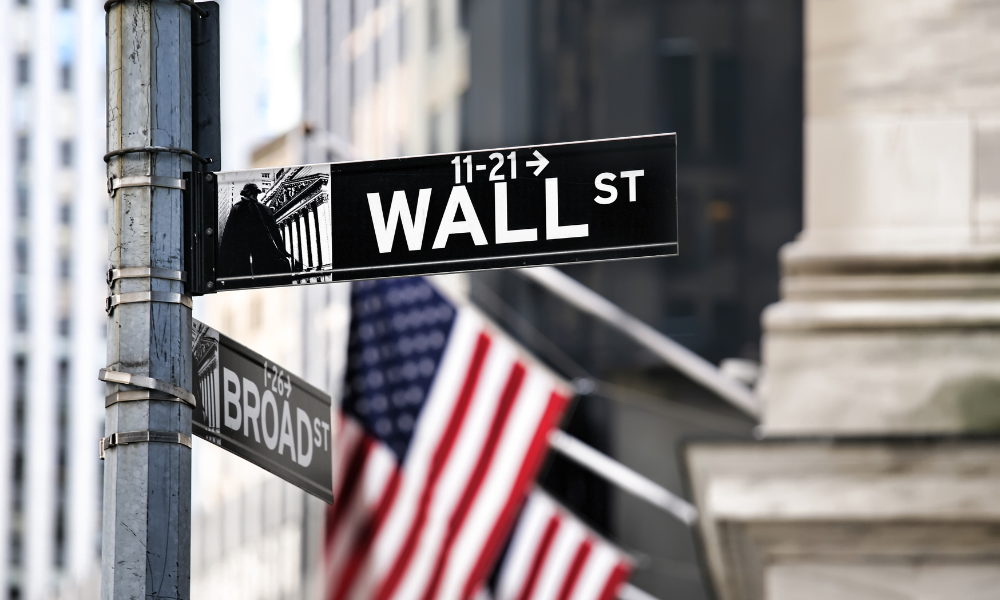

Wall Street bonuses climbed sharply in 2024, rising 31.5 percent to an average of $244,700, as the securities industry posted its strongest year in more than a decade, according to newly published figures from New York State Comptroller Thomas DiNapoli.
The total bonus pool reached a record $47.5 billion, the highest since the state began tracking the data in 1987. The rise follows a nearly 90 percent jump in industry profits, driven by gains in investment banking fees, corporate debt issuance, and trading revenue.
“This financial market strength is good news for New York’s economy and our fiscal position, which relies on the tax revenue it generates,” DiNapoli said in a statement on Wednesday.
The figures from the NY comptroller's office vindicate a previous forecast by compensation consultant Johnson Associates. In November, it predicted the merriest Christmas in years for Wall Street professionals as virtually every sector showed strong performance.
"Firms are in a strong financial position to do what they haven’t been able to do since 2021 – reward their professionals with larger bonuses,” the firm said.
Those payouts are expected to add approximately $600 million in state income tax revenue and $275 million in city revenue, providing a timely boost to government finances as policymakers contend with potential budget shortfalls tied to federal funding reductions and regulatory uncertainty.
DiNapoli estimated that between 2023 and 2024, Wall Street alone represented a fifth (19 percent) of New York State's tax revenue.
Governor Kathy Hochul’s proposed state budget had projected a 16.4 percent bonus increase across finance and insurance, which DiNapoli said will likely be met or exceeded.
Still, officials warned that the favorable conditions may not extend into 2025. DiNapoli cited rising economic uncertainty and shifting federal policy – including changes to tariffs and financial regulation under the Trump administration – as factors that could temper deal activity and earnings in the coming quarters.
Employment in the securities industry rose to 201,500 last year, the highest annual level in three decades. That figure is up from 198,400 the prior year, and reflects continued demand for finance-sector talent despite broader trends toward cost containment and automation.
While New York remains a key financial hub, its share of securities industry jobs in the US has dropped to 18 percent, down from about one-third in 1990, as firms expand operations in lower-cost regions.
Even so, financial firms are playing a central role in post-pandemic office leasing, which has supported New York City’s commercial real estate recovery.
Roughly one in every eleven jobs in New York City is either directly or indirectly tied to the securities industry, the comptroller’s office estimated.
The last time Wall Street saw a comparable bonus surge was in the immediate aftermath of the pandemic, when market volatility and deal volume also led to outsized performance-related compensation.

Plus, a $400 million Commonwealth team departs to launch an independent family-run RIA in the East Bay area.

The collaboration will focus initially on strategies within collective investment trusts in DC plans, with plans to expand to other retirement-focused private investment solutions.

“I respectfully request that all recruiters for other BDs discontinue their efforts to contact me," writes Thomas Bartholomew.

Wealth tech veteran Aaron Klein speaks out against the "misery" of client meetings, why advisors' communication skills don't always help, and AI's potential to make bad meetings "100 times better."

The proposed $120 million settlement would close the book on a legal challenge alleging the Wall Street banks failed to disclose crucial conflicts of interest to investors.
Orion's Tom Wilson on delivering coordinated, high-touch service in a world where returns alone no longer set you apart.
Barely a decade old, registered index-linked annuities have quickly surged in popularity, thanks to their unique blend of protection and growth potential—an appealing option for investors looking to chart a steadier course through today's choppy market waters, says Myles Lambert, Brighthouse Financial.
